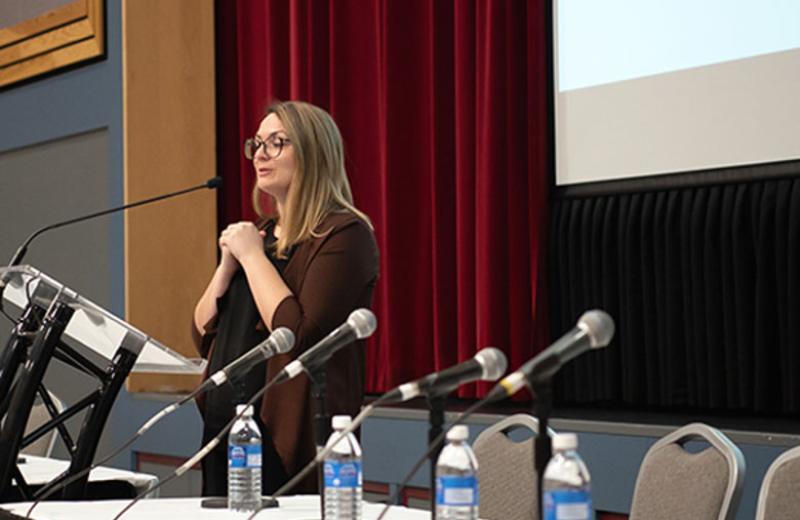I’ve always been curious about researchers at post-secondary institutions. What made them want to get into research, and what continues to drive them? Through my role at Northern Health, I’ve been fortunate to meet multiple researchers at the University of Northern British Columbia (UNBC).
To appease my curiosity, I approached Chelsea Pelletier, Assistant Professor in the School of Health Sciences and an avid researcher at UNBC, to learn about her path to becoming a researcher and her current projects.
“During my undergraduate studies in Kinesiology at Acadia University in Nova Scotia, I was unsure what I wanted to do after graduation,” says Chelsea. “In my fourth year, I did an honours project that involved a research component. I thoroughly enjoyed the process and learning about research. My mentor encouraged me to pursue additional education and a career in research. It’s led me to where I am today.”
After graduation, Chelsea moved to Ontario where she furthered her education with McMaster University’s Master’s and Doctoral (PhD) programs in Kinesiology.
“I was interested in exercise and physical activity to manage or prevent chronic disease. My Master’s and PhD programs were an opportunity to connect with people in those fields and learn more.
“I did a post-doctoral fellowship at the Toronto Rehabilitation Institute. They help people to overcome the challenges of injury, illness, or age-related health conditions to live active, healthy lives. My supervisor ran a program for chronic disease and exercise; I learned a lot about how to work with people and community members. It inspired me to continue on this path for my research.”
In 2015, Chelsea took her talents west to Prince George to begin her career as a professor and researcher.
“Since I started at UNBC, I’ve been able to grow my research in areas that matter to communities. I spend a lot of time not only talking to community members, but listening to them. I try to let the community drive the research rather than my own interests.”Chelsea’s research mainly focuses on factors that shape physical activity for communities, understanding how to work with partners, and adding physical activity to people’s lives.
“Physical activity is an important part of being healthy. It decreases stress, improves self-esteem, gives you energy, and makes you stronger. It helps prevent chronic diseases such as obesity, heart disease, type 2 diabetes, and strokes. As we age, it becomes even more important to live an active life.”
She’s also working on a few special projects including a cardiac rehab study in Terrace, and a study with the BC Wildfire Service to learn about the impacts wildfires have on firefighters and command-centre staff.
As Chelsea’s career progresses, she continues to work with community members and partner organizations to focus on items that matter to them. All of these have an end goal of improving physical activity in the North and creating healthier communities.














Comments